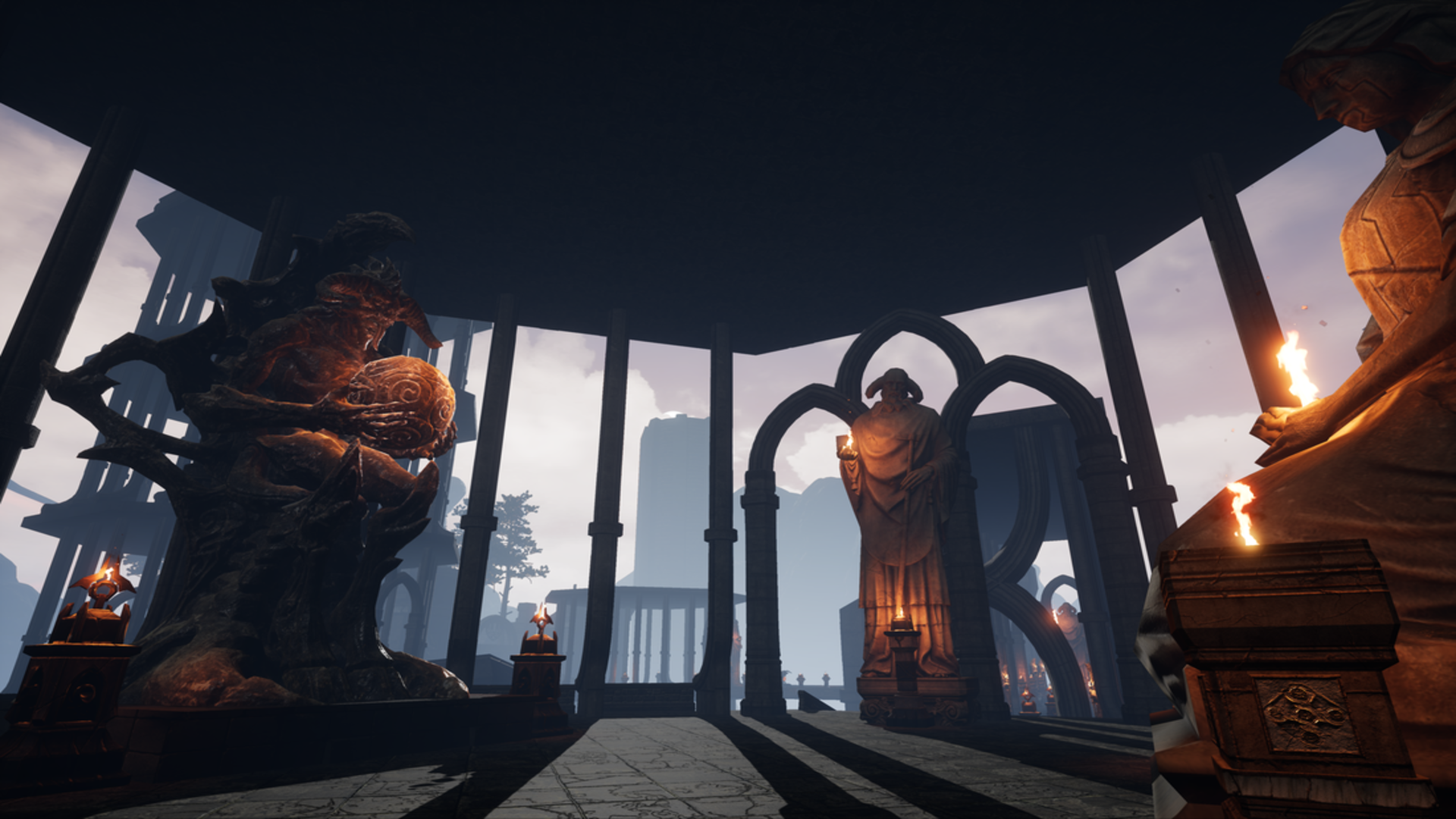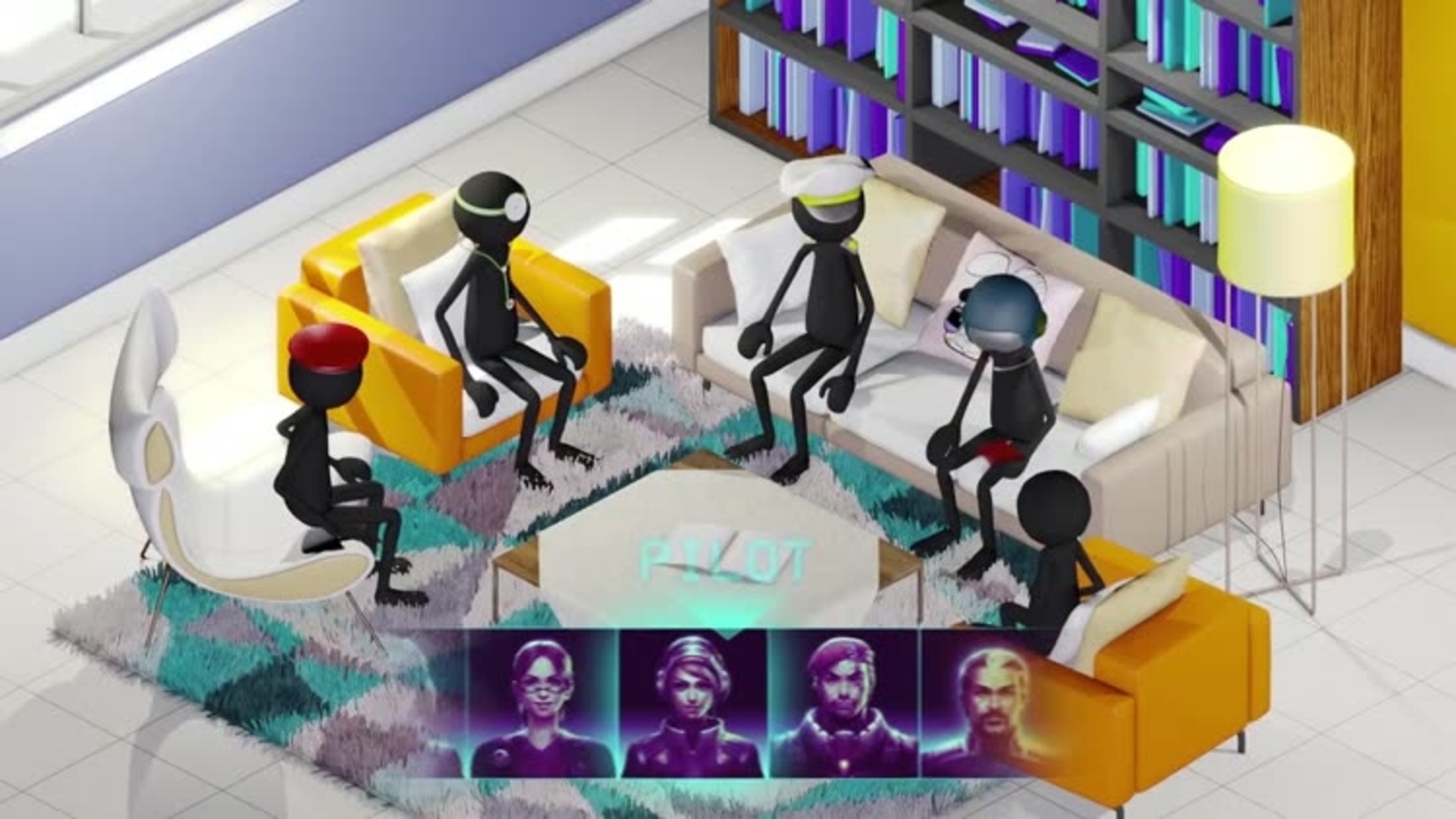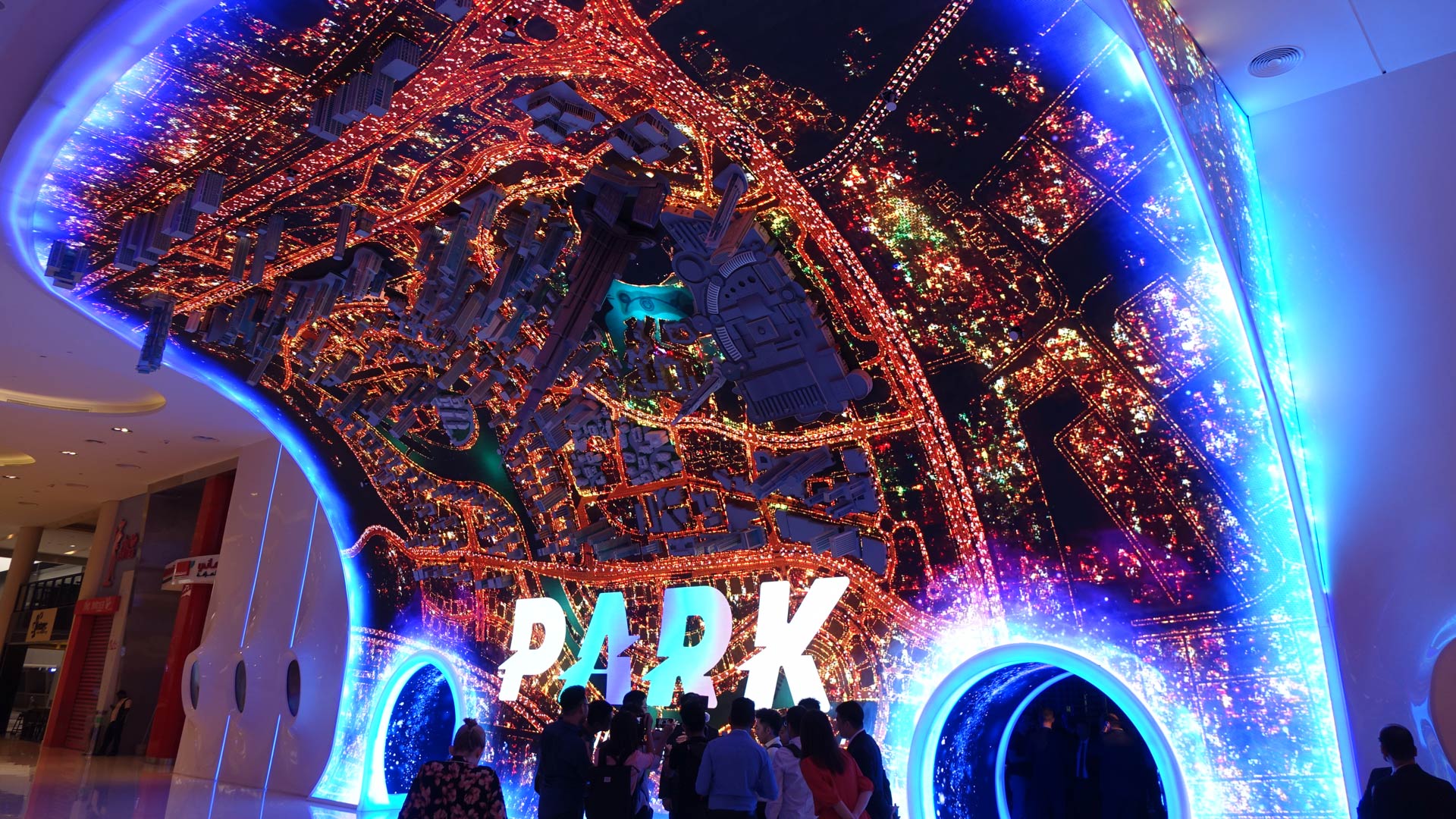Indie Game Development Is Thriving In The Middle East
We head to the UAE to explore its burgeoning indie game scene.

It’s 33 degrees Celsius outside. The sun is shining, just like it does every day. And yet, in the middle of a convention centre, a darkened, cavernous hall is lit only by the neon glow of TVs and PC monitors. The combined soundscape of digital weaponry, lively chatter and thumping bass is deafening. In the meet ’n’ greet section, a group of children are screaming and running – they’ve just seen a YouTuber in the flesh for the very first time and are desperate to find their place in the queue.
This could be a scene from E3 – or, for that matter, any of the major conventions you might hear about on an annual basis. In fact, this is a much smaller, much newer and, potentially, much more exciting convention. I’m in the United Arab Emirates, at Abu Dhabi’s Middle East Games Con. I’m here to speak to indie developers from the UAE and other Arab countries, to find out exactly what I’m missing out on.
The key to unlocking the indie potential of the UAE perhaps lies with the government itself. At the convention, I meet Maitha from the Sharjah Youth Centre (SHJYC), operators of indie publisher 71-Bit Games. This government-backed program provides exposure and guidance to young developers, as well as assisting with funding. In lieu of any royalties or return on investment, developers are instead asked to share their knowledge with the rest of their peers as they learn. They could give talks, run seminars and workshops, or anything else that could help others to succeed.

This year, the SHJYC hosted Game Zanga, an Arab game jam, which saw more than ten times as many local developers sign up than last year. The youth centre offered a total prize pool of 4,500 AED (around £950 or $1,200). At the end of the jam, three locally-made games claimed a top ten spot, out of 107 worldwide entries.
“UAE youth are willing to take part in the industry,” says Maitha, “as long as the right places care about their talents.” Impressively, the project is in its infancy, having only been running for a few months. If it is successful in the long run, and the next generation of indies are walking paths paved by those who came before, the SHJYC could be the source of some incredible things in years to come.
Not everybody is so educationally-minded. Ahmad Yassin is a solo developer, the founder of FishyTushy Studios and creator of Shadow Dreams, a fast-paced FPS with elemental powers replacing traditional weaponry. He seems to enjoy working alone, as evidenced by the credits screen. Row upon row of his own name, cheekily announcing to the world: ‘I did this.’ He has also just opened pre-orders at the show, a move he describes as being a “major success.”
Yassin describes the indie scene in the UAE as being “like an oasis in the desert: small and hard to find, yet full of life.” I would certainly agree with the last part. Yassin’s a family man, working a full-time job and getting development time in where he can, but he still manages to come across as lively and energetic.

Yassin’s story is not unique. Many of the developers I speak to at the Middle East Games Con have not been working in the industry for very long. Most are working part time at best, and are still waiting for their first big hit. Exposure is hard to come by. Still, despite all of this, spirits are high. “Finally!” is the half-joking reaction from one developer when I explained that I was there to write exclusively about indies. The indie presence is fairly substantial, considering the size of the event, and every single developer I meet is as ‘full of life’ as Yassin describes.
One of the most established indies in the area is Hybrid Humans, best known as the developers of Who Lurks – a deception-focused mobile game similar in concept to the card game The Resistance. I ask Ali Hassan, their CTO, what it was like to be an indie developer in the UAE.
“It’s getting better,” he says. “We’re hopeful that we will be much better, and in greater numbers, next year.” He gestures to the indie section of the convention, a row of TVs, laptops, tablets and phones running games developed by local studios. “Last year, we were the only one… Happily, we have been the inspiration for some others as well.” Watching the indie stand, I notice developers from different studios talking, laughing, playing each other’s games and helping out when technical issues crop up. It’s a collaborative atmosphere.

The indie scene here is still in the early stages, of course. The convention itself is only in its second year of operation. Even so, attendance has almost doubled since last year, with approximately 18,000 attendees over three days. The event’s organisers are planning to book extra halls next year. I’m hoping to come back, and I’m eager to see the progress that these indie developers will have made in the next 12 months. I’m even more excited to see the developers who weren’t there at all this year, or those who don’t even exist yet.
It’s easy to forget, for all the beautiful skyscrapers, elegant gardens and golden beaches, for all that you’ve seen and heard about the luxury of Dubai, that the UAE has only existed as a country since 1971. The fact that they’re embracing gaming so openly is fantastic. Prior even to this event, I spent a day at Dubai’s PVRK, a Virtual Reality theme park and, before that, a small gaming festival at the local mall with a wide range of playable games, totally for free. This is not just a country of wealthy playboys and sand – gaming is taken seriously here.

His Excellency Saif Saeed Ghobash, Undersecretary for the Department of Culture and Tourism, also seems optimistic about his country’s place in gaming culture. Speaking at the opening ceremony of the convention, he muses: “Perhaps a gamer or publisher here this week will go on to become a major brand or household name.” I would add ‘indie developer’ to that. There is enormous potential here, just waiting for an outlet. Without a doubt, there’s a Middle Eastern Undertale or Hotline Miami to come – all we need to do is make sure we’re looking in the right direction when it does.
